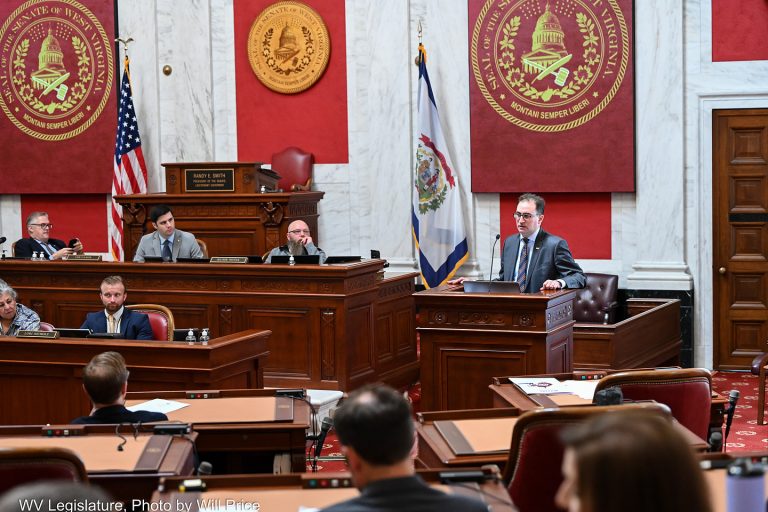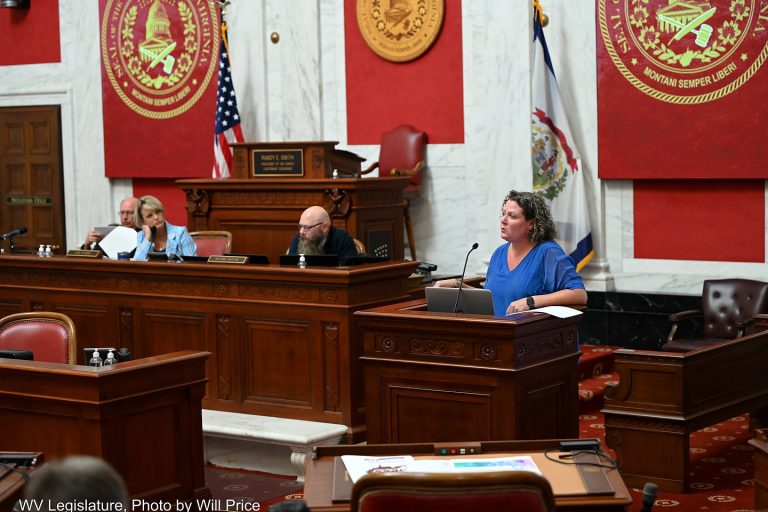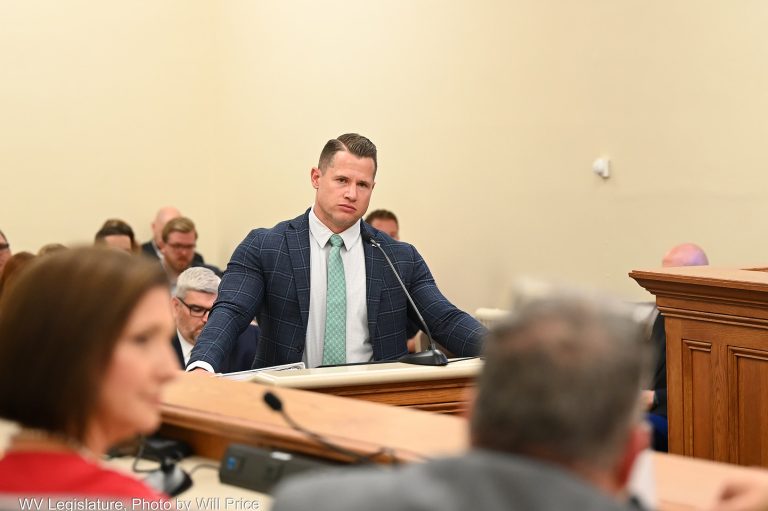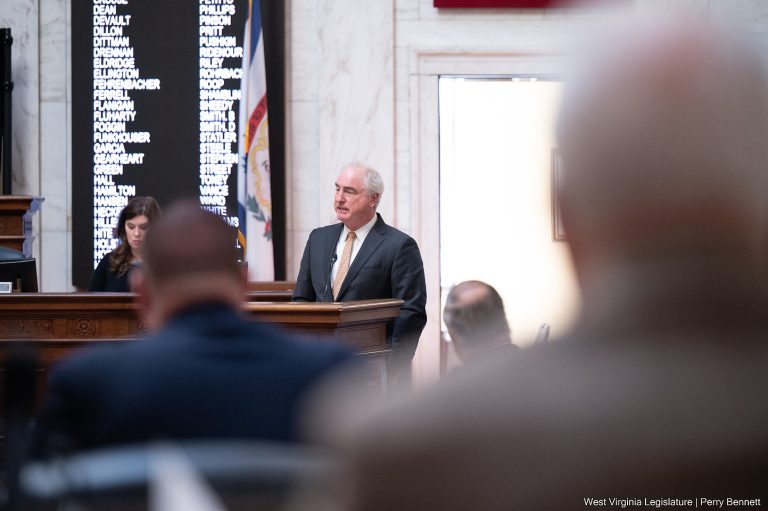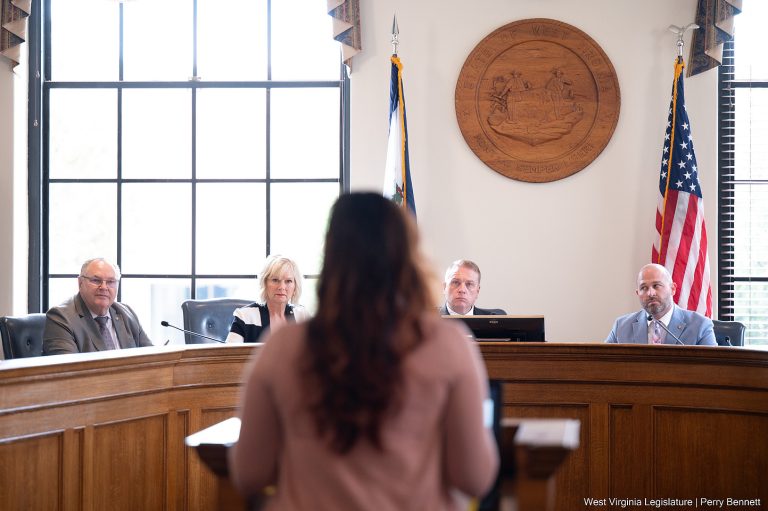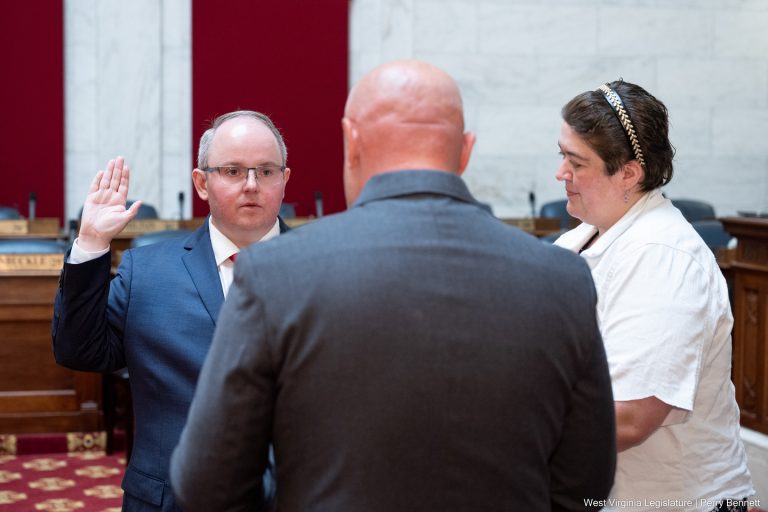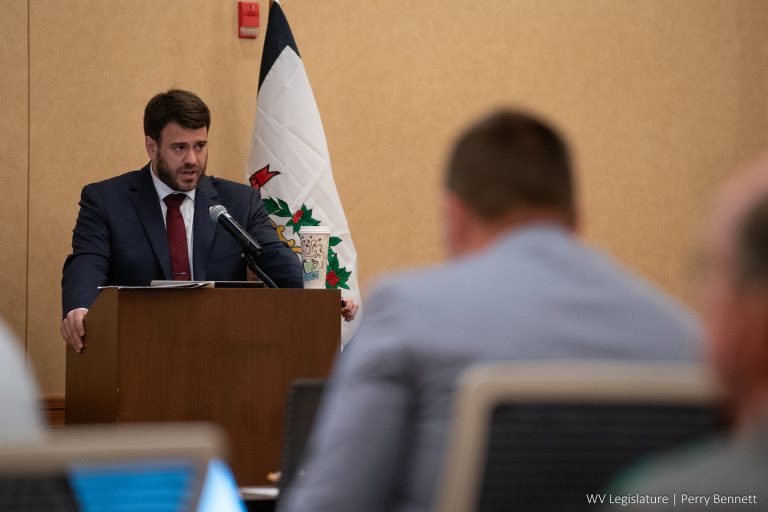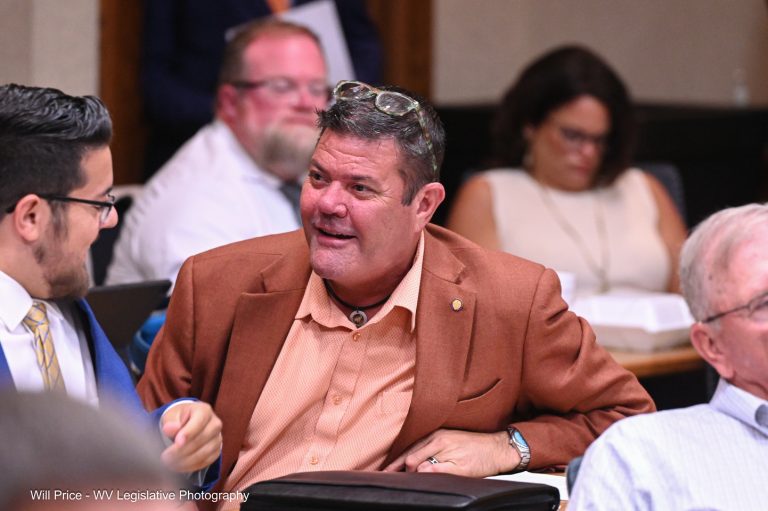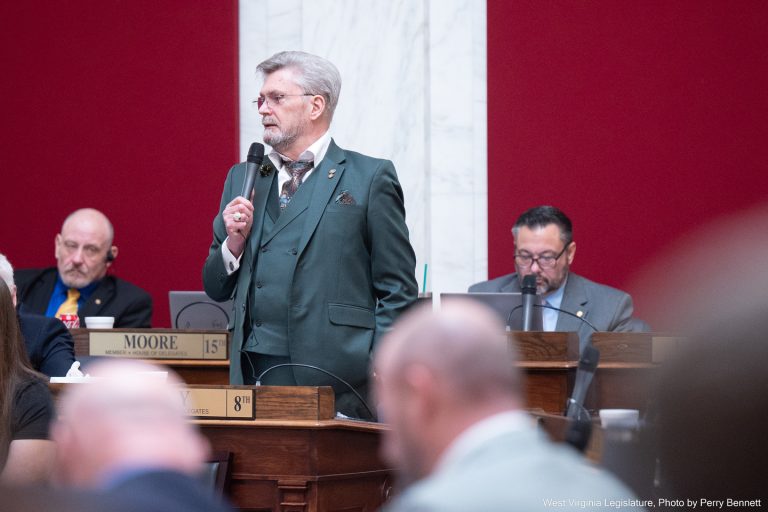House Bill 3347 creates a new appropriation of $15 million within the Division of General Services for Capital Expenditures, Repairs, and Equipment Surplus.
House Bill 3349 appropriates $45,022,906 from the state excess lottery revenue fund to the Department of Human Service.
House Bill 3350 reduces appropriation to the Division of Corrections and Rehabilitation, Correction Units to $5,483,314 for Special Services and $5,885,255 for Direct Transfer. The bill also appropriates $1,769,890 to the Bureau of Juvenile Services.
House Bill 3352 appropriates $39,376,837 of general revenue funds to the Department of Human Services, Medical Services- Surplus.
House Bill 3356 appropriates $28,400,666 from the unappropriated balance of the General Revenue to the Hope Scholarship.
House Bill 3357 appropriates $33,804,764 of the unappropriated surplus balance of the Lottery Net Profits to the Hope Scholarship.
House Bill 3358 increases federal block grant spending authority to the Department of Human Services by $21,000,000 for TANF.
House Bill 3359 decreases funds from the Economic Development Authority Service by $9,506,440 and increases appropriations for the Department of Human Services and Medicaid Services by the same amount.
House Bill 3360 expires $28,693,181.72 from the West Virginia Development Authority, Economic Development Project Bridge Loan Fund, to the unappropriated surplus balance.
House Bill 3361 appropriates $6,589,343 from the unappropriated balance of General Revenue for fiscal year 2025 to the West Virginia Birth to Three.
House Bill 3363 increases the appropriation to Public Defender Corporations by $2,600,00 and Appointed Counsel Fees (R) by $20,000,000 from general revenue.
House Bill 3365 increases spending authority for the Birth-to-Three Fund by $5,888,483.
House Bill 3366 increases the federal spending authority of the Department of Health, Office of the Inspector General, by $979,697 for personal services, repairs, equipment, and other expenses.
House Bill 3367 changes spending authority for the Department of Commerce, Division of Natural Resources-License Fund-Wildlife Resources by decreasing Capital Improvements and Land Purchases by $2,317,193. The bill also increases Wildlife Resources by $605,639 and Law Enforcement by $1,304,898 for a total increase of $2,317,193.
House Bill 3368 appropriates $581,900 from General Revenue to the Department of Administration.
House Bill 3369 increases appropriations for the Department of Education by $596,981.
House Bill 3370 increases federal spending authority to the Department of Human Services by $32,132,229.
House Bill 3371 decreases funds for Welch Community Hospital by $58,632 and increases appropriations to the Office of the Inspector General in the same amount. This transfers an FTE.
House Bill 3372 increases federal spending authority for the Department of Veterans Assistance by $60,700 for Personal Services and Employee Benefits.
House Bill 3373 extends the Division of Economic Development to January 1, 2030.
House Bill 3389 excludes the Department of Tourism as a “governmental agency” to exempt the Department from the requirement to offer the division of vocational rehabilitation the opportunity to operate the Department’s food service facilities.
House Bill 3411 repeals code relating to expired legislative commissions, including the Legislative Building Commission, the WV Sesquicentennial of the American Civil War Commission and Fund, The Council of Finance and Administration, the Steering Committee for the WV Enterprise Resource Planning Board, the WV Sentencing Commission, the Toll Road Study Commission, the Select Committee on Outcomes-based Funding Models in Higher Education, Equal Pay Commission, Joint Legislative Oversight Commission on State Water Resources, Commission on Interstate Cooperation, and the Legislative Oversight Committee on WV Regional Jail and Correctional Facility Authority. Additionally, the bill removes legislative membership from the Employee Suggestion Award Board, the WV Forest Management Review Commission, the WV Economic Development Strategy, the WV Fusion Center, and the State Board of Risk and Insurance Management. Finally, the bill moves the duties of the Joint Commission of Government Operations duties to the Joint Committee on Government Organizations.
House Bill 3424 removes language relating to short-term loans being provided to released inmates for the cost of reentry.
House Bill 3429 allows the Department of Environmental Protection to evaluate letters of interest from engineering firms to generate “Prequalified Lists of Consultants.”
House Bill 3434 changes the Controlled Substance Act by updating schedules to match federal government schedules.
House Bill 3440 removes outdated code relating to the State Treasurer’s Office.
House Bill 3444 repeals the sections of code relating to newborn eye inflammation. With the repeal, the mandate to apply the antibiotic erythromycin is removed, the reporting requirements are removed, and penalties for not applying are removed.
House Bill 3456 transfers the Stevens Correctional Center from the McDowell County Commission to the Division of Corrections and Rehabilitations, which will be managed by the Commissioner. The employees will become employees of the WV DCR.
House Bill 3492 authorizes the City of Huntington to level a special district tax for the benefit of the City of Huntington.
House Bill 3503 states that no county, municipality, or political subdivision may prohibit, regulate, permit, or license commercial horticulture within the subject matter of the Water Pollution Control Act. The bill invalidates any within the subject matter of the Water Pollution Control Act and all such provisions in charters, laws, rules, regulations, ordinances, or zoning provisions, which already try to do this. The bill also prevents counties, municipalities, or political subdivisions from suiting a commercial horticulture operation for any activity within the subject matter of the Water Pollution Control Act if the commercial horticulture operation is in material compliance with the Water Pollution Control Act, its rules, and federal laws and regulations.
House Bill 3504 defines critical infrastructure as including licensed livestock stockyards, licensed livestock slaughter facilities, and licensed commercial poultry facilities.
House Bill 3513 removes the liability of licensees who sell or serve alcohol in a civil action for damages for injury, death, or damage caused by the intoxication of a person they served unless the licensee knowingly provides alcohol to a minor or knowingly provides alcohol to a person who is visibly intoxicated. The bill limits the liability for medical expenses to $1 million and punitive damages of up to two times the compensatory damages. The bill requires clear and convincing evidence of gross negligence for action to be brought against the owner.
House Bill 3515 allows the State Police superintendent to appoint 20 principal supervisors from the membership to receive compensation and hold the temporary rank of lieutenant colonel, major, or captain at the superintendent’s will and pleasure.
House Bill 3517 establishes a system to remedy fiscal emergencies in local governments. The State Auditor may review and determine if a local government’s records and accounts have not been maintained correctly. The State Auditor may set deadlines for completing an action plan.
House Bill 3522 is a supplemental appropriation providing $2 million to the Division of Culture and History for Cultural Facilities and Capitol Resources Matching Grant Program Fund.


